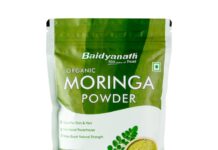
The Barry Callebaut Group, a manufacturer of high-quality chocolate and cocoa products, hosted an exclusive virtual press event in Japan to announce its collaboration with local chocolate manufacturers, artisans, retailers, and wholesalers such as Morinaga, Yuraku Confectionery, FamilyMart, G+ Spread, Le Chocolat De H, Chocolate Design and J Maeda to make sustainable chocolate the norm for the Japanese market.
Since the global launch of Forever Chocolate, its plan to make sustainable chocolate the norm by 2025, Barry Callebaut has persistently pushed for systemic change to the cocoa and chocolate value chain worldwide and in Japan over the past few years. Amongst various efforts, the Swiss company has consistently championed for companies to be purpose-driven and put sustainability at the heart of their business strategy. They have also led the introduction of Cocoa Horizons, one of its key sustainability programs, as an effective avenue for customers, as mentioned above, to contribute directly to sustainability efforts in origin countries.
Increased focus on sustainability amidst Covid-19 pandemic
With the long-term shift towards sustainable chocolate because of its positive effects on economic, social, and environmental change, several chocolate manufacturers in Japan have reaffirmed their commitment to producing sustainable chocolate even during the Covid-19 pandemic.

In March this year, Yuraku Confectionery pioneered this move by announcing their transition to 100% sustainable chocolate in all their highly popular Black Thunder chocolate bars by 2025. In the coming weeks, the leading confectionery maker in Japan, Morinaga, will also introduce its sustainable chocolate products that will be widely available in grocery shops and retailers across Japan. These partnerships with Barry Callebaut show it is possible to make a difference on a large scale.
Machiko Miyai, director and managing executive officer of Morinaga in Japan, said, “With escalating global awareness around environmental issues, as witnessed at the Davos Conference and the Australian wildfires, we were considering how we, as a manufacturer of chocolate, should tackle these issues through our business. At such a time, Barry Callebaut introduced the Cocoa Horizons program as a way for us to make chocolate that is good for the people who eat it, suitable for the people who make it, and good for the planet. So we decided to start using Cocoa Horizons cacao as the environmentally friendly source.
Businesses and consumers are going back to the source
Covid-19-related disruptions, such as the impact on cocoa farmers’ livelihoods in Africa and Indonesia, have also brought focused attention on the preference of businesses to understand the source of their products. Hence, more chocolate manufacturers, artisans, and retailers are turning to sustainability programs like Cocoa Horizons. It is the most direct and effective way to improve cocoa farmers’ livelihoods, eradicate child labor, and protect nature.
Hironobu Tsujiguchi, chocolatier from Le Chocolat De H, said, “I believe the ‘farm to bar’ approach is the basis for improving the quality of our creations. We need to tell consumers that a good tasting product begins with the growth and fermentation of raw materials at origin countries. Therefore, it is important to be aware of where these ingredients come from and to find added value for the farm and the store.”
Barry Callebaut‘s artisan customers, such as Le Chocolat De H, have long paved the way for sustainable chocolate through its Gourmet product offerings. Under the finest Belgian chocolate brand Callebaut, cocoa can now be traced back to the Cocoa Horizons farming communities in Ghana, Ivory Coast, and Ecuador.
Too, particularly of Generation Z, consumers are increasingly integrating their social and environmental concerns into their buying decisions. These consumers are mindful of their purchases and want to make social and ethical contributions through their everyday life.
“Our bold mission is to change the entire chocolate industry in Japan. We cannot do this alone, and we are not alone. The new Japanese consumers care deeply about our planet and its people and today, as we stand together to represent the chocolate industry in Japan, we are serious about sustainability. Together we will leave a legacy of change for generations to come,” said Pascale Meulemeester, managing director for Barry Callebaut in Japan.
A 2019 consumer insights research (Forever Chocolate Sustainability Consumer Research by Barry Callebaut, June 2019) by Barry Callebaut revealed that more than 70% of Japanese consumers believe that sustainable chocolate products are more trustworthy, of better quality, and in alignment with their values. 75% of Japanese consumers linked the purchase of sustainable chocolate products with a feel-good factor, and more than 50% indicated that they would buy sustainable chocolate in the future.
IndiFoodBev — authentic, impactful and influential
An English-language food and beverage processing and packaging industry B2B platform in print and web, IndiFoodBev is in its third year of publication. It is said that the Indian food and beverage industries represent approximately US$ 900 billion in revenues which implies more than 20% of the country’s GDP. Eliminating the wastage on the farmside can help to deliver more protein to a higher number of the population apart from generating sizable exports. The savings in soil, seeds, water, fertilizer, energy and ultimately food and nutrition could be the most immense contribution that country is poised to make to the moderation of climate change.
To improve your marketing and grow sales to the food and beverage processing and packaging industry, talk to us. Our research and consulting company IppStar [www.ippstar.org] can assess your potential and addressable markets in light of the competition. We can discuss marketing, communication, and sales strategies for market entry and growth.
Suppliers and service providers with a strategy and budget for targeted marketing can discuss using our hybrid print, web, video, and social media channels to create brand recognition linked to market relevance. Our technical writers are ready to meet you and your customers for content.
The second largest producer of fruit and vegetables in the world is continuously expanding processing capacities and delivery systems with appropriate innovative technologies. We cover product and consumer trends, nutrition, processing, research, equipment and packaging from farm to thali. Get our 2025 media kit and recalibrate your role in this dynamic market. Enhance your visibility and relevance to existing markets and turn potential customers into conversations. Ask for a sample copy of our bi-monthly in print or our weekly IndiFoodBev eZine each Wednesday.
For editorial info@ippgroup.in — for advertisement ads1@ippgroup.in and for subscriptions subscription@ippgroup.in
Naresh Khanna – 10 February 2025
Subscribe Now










